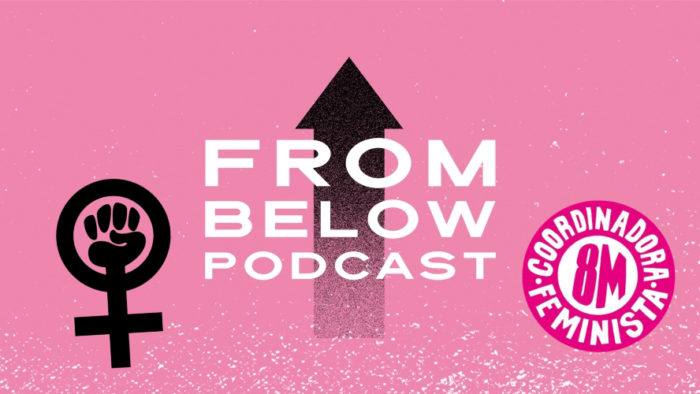
Black Rose/Rosa Negra is a proud feminist organization. We take our political inspiration from the historical struggles of working class women, including those who carried out their work in the name of other movements or ideologies. While we value the feminisms that can be found in our own neighborhoods and workplaces, we also seek to learn all lessons possible from the parts of the world where feminism is ascendant. Our international partnerships have resulted in a strong Latin American perspective in our writing and ideological perspectives – something we find appropriate for an organization based in the Americas.
Below we include a list of feminist resources produced by Black Rose/Rosa Negra militants, featuring articles, downloadable pamphlets, audio interviews, video presentations and recommended texts. These reflect the broad politics of our organization, which is to say rooted in the struggles of the working class and representing an anarchist/libertarian perspective. Updated June 2019
Anarcha-Feminism: To Destroy Domination in All Forms

History is a weapon but it also serves as a reflection of the past through which we make better sense of the present. Julia Tenenbaum writes on anarchist feminism and its emergence as a distinct current from the larger radicalization of the 1960s and 70s period. Link
Feminism is Everywhere: Building a Multisectoral, Transversal Movement in Chile
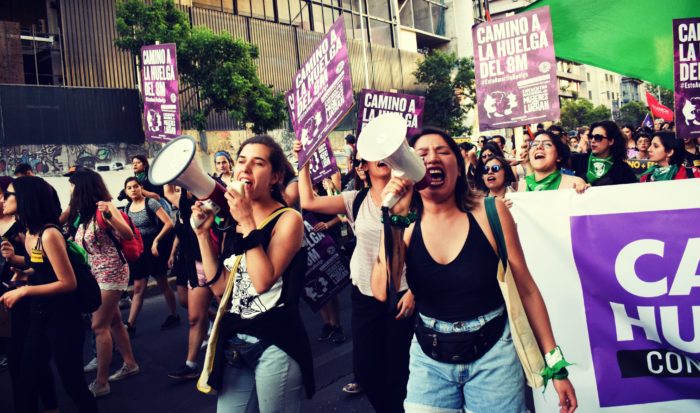
Bree Busk explores the rise of a multisectoral, transversal feminist movement in Chile on This Is Hell! podcast – connecting the oppression of women, workers, migrants and indigenous people in Chilean society with the power of capitalism, patriarchy and the state, and linking social movements together in solidarity and shared struggle for liberation. Link
From Below Podcast: Feminism Against Capitalism
Premiere episode of From Below Podcast interviews members of the Anti-Capitalist Feminist Coalition (ACFC) in Los Angeles and with Alondra Carrillo of the Coordinadora Feminista 8M organizing a feminist strike in Chile for International Women’s Day. Link
Lessons From Latin American Feminism – Video Presentation

In this video presentation Bree Buskand Romina Akemi discuss the global implications of the current upsurge of feminist activity in Latin America with a focus on Chile and Argentina. Link
Statement: Kavanaugh and a Feminist Movement Fighting to End Capitalism

Black Rose/Rosa Negra Anarchist Federation Statement on Kavanaugh and a Feminist Movement Fighting to End Capitalism. Link
A Feminist Movement to End Capitalism, Part I
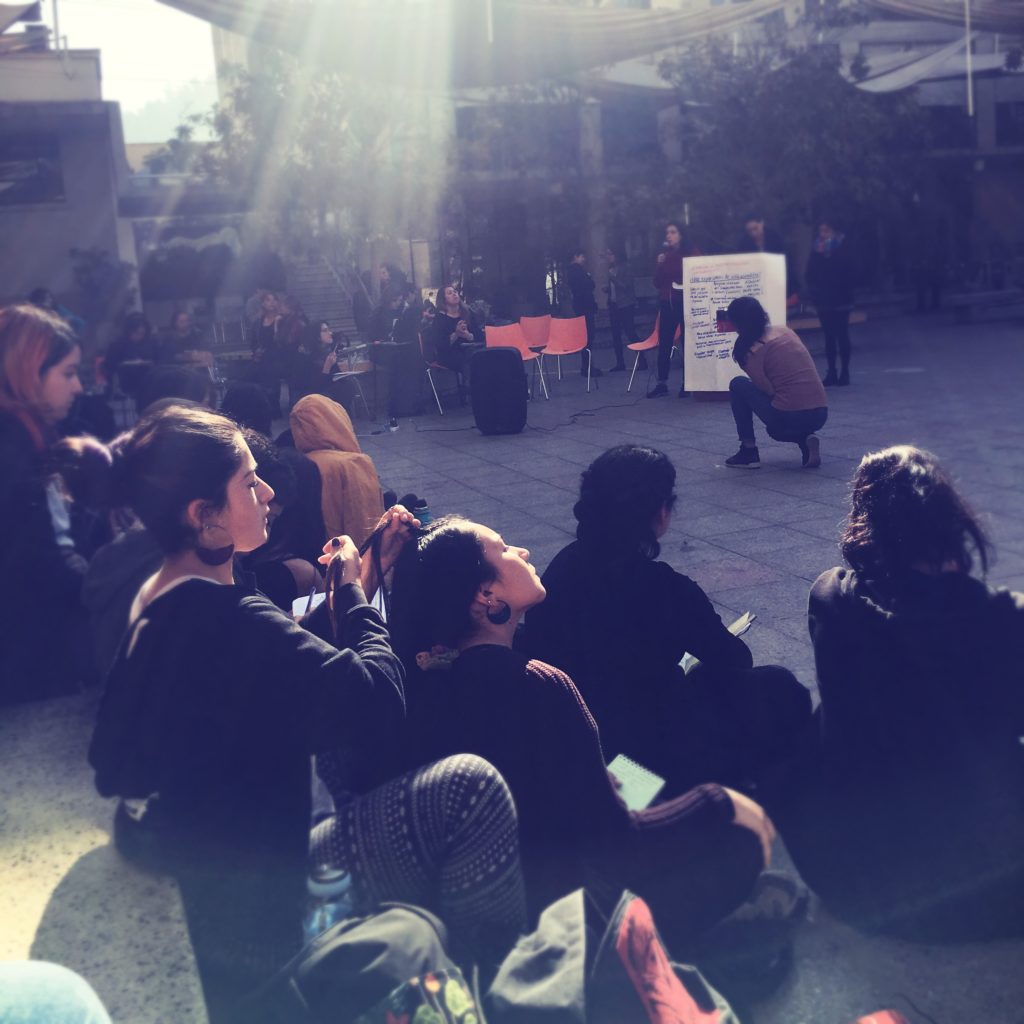
A two part series on looking at anti-capitalist feminism in South America and with a wealth of concepts and analysis that we can draw from in the U.S.
Link – Part I English / Versión Español
Link – Part II : Between the Feminist Wave and the Green Sea
A Conservative Threat Offers New Opportunities for Working Class Feminism
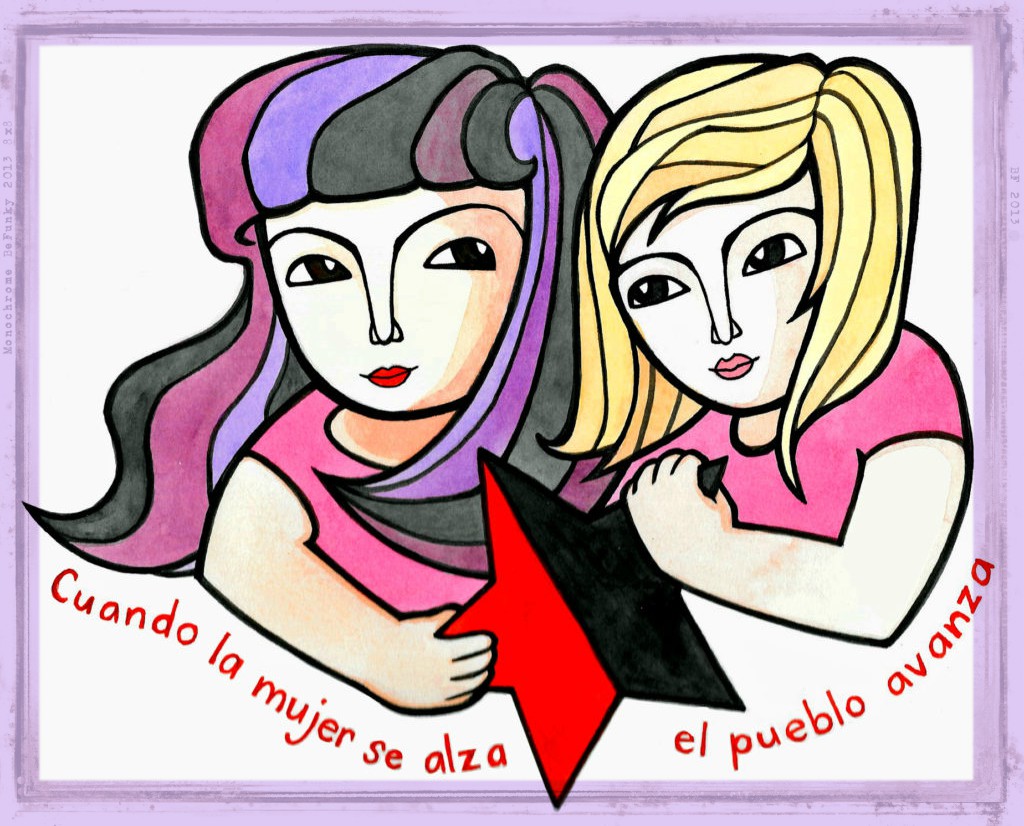
“This much is clear: the Women’s March represents a political opening to rebuild a revolutionary feminist movement (in conjunction with other developing struggles) that advances demands to improve the lives of working people and embraces conflict with the liberal, capitalist character of the feminist movement of the day.”
Text in English / Download the Trifold Flyer in English
Text in Spanish / Down the Trifold Flyer in Spanish
Breaking the Waves: Challenging the Liberal Tendency Within Anarchist Feminism
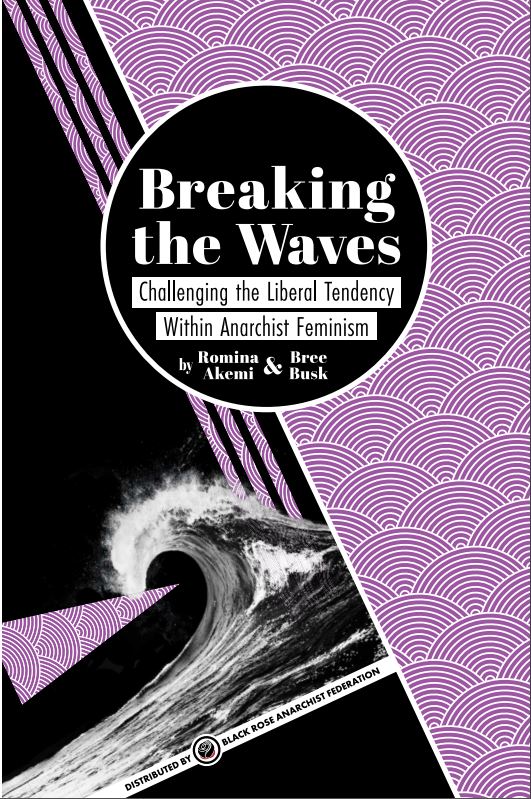
“Breaking the Waves is a call to break with liberal feminism and acknowledge the necessity of reconstructing our own anarchist feminist historical tradition. We are simultaneously declaring a need for anarchists who are feminists and feminists who are anarchists to discuss and debate what anarchist feminism means in practice and to refine that definition through renewed struggle. … Our politics are more than just useful tools for managing our personal lives; they represent the blueprints for a world worth fighting and dying for.”
Radio Interview with Romina Akemi on “Breaking the Waves”
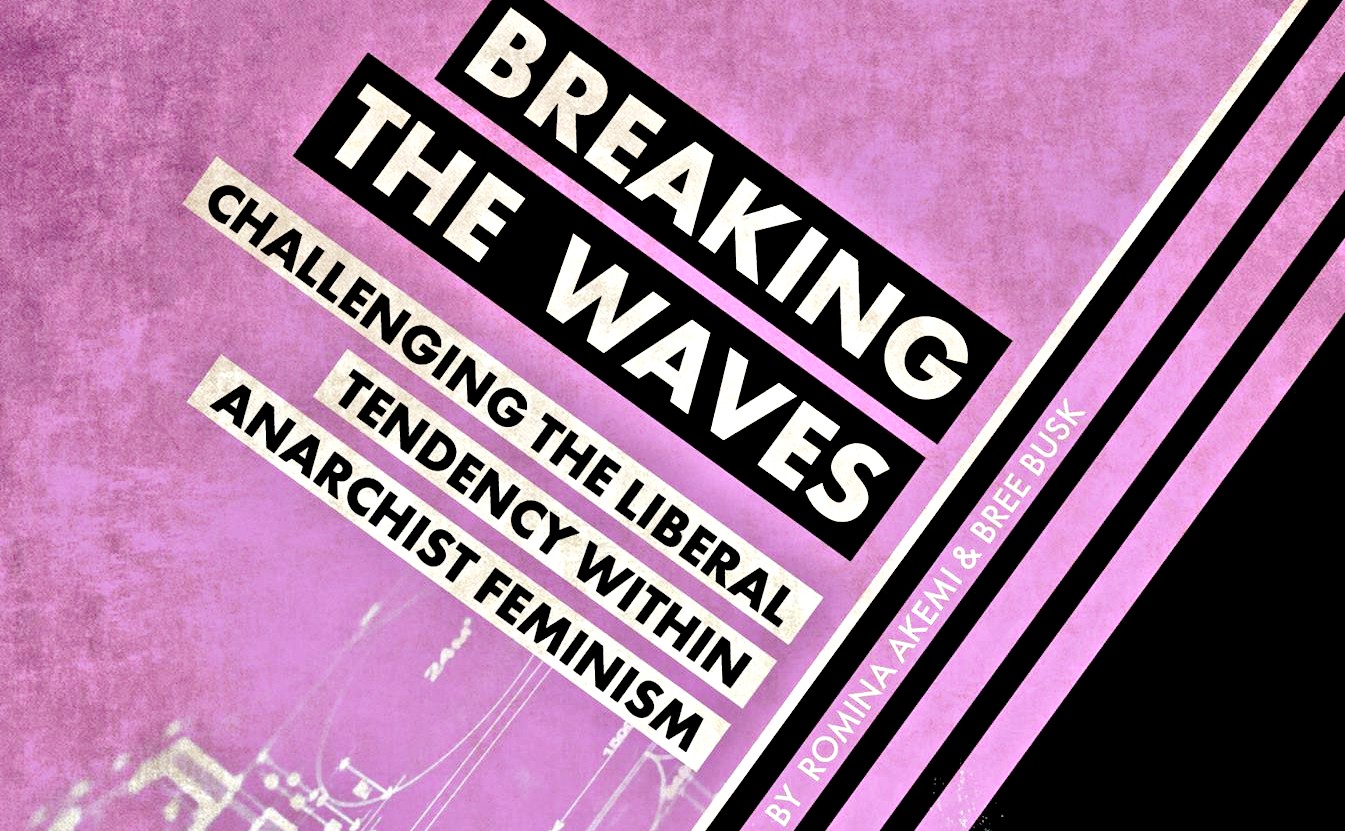
Covering topics in the article and beyond, one of the authors discusses working class feminism, the destructiveness of call out culture, the cult of the individual in the US, making revolutionary politics relevant to every day people, and on the impact of Trump’s election.
“What’s causing a lot of people anxiety is the anxiety of not knowing what exactly will be in play [under a Trump presidency] and how this will pan out economically or with social rights. I think this is the point where we can decide, an important juncture, are we going to organize to defend the little stuff that we have now against attack – or can we use it, can this be a political opening to create an offensive?”
Reflections on Anarchism, Feminism, Anarcha-Feminism and Social Movement Work Today
A bilingual panel even held in Los Angeles in February 2015 with Lorenalia Mans of the FOL/Frente de Organizaciones en Lucha (Argentina), Inger Flem Soto of La Alzada, Acción Feminista Libertaria (Chile), and Romina Akemi, of Black Rose Anarchist Federation / Federación Anarquista Rosa Negra (US).
Additional Recommend Readings
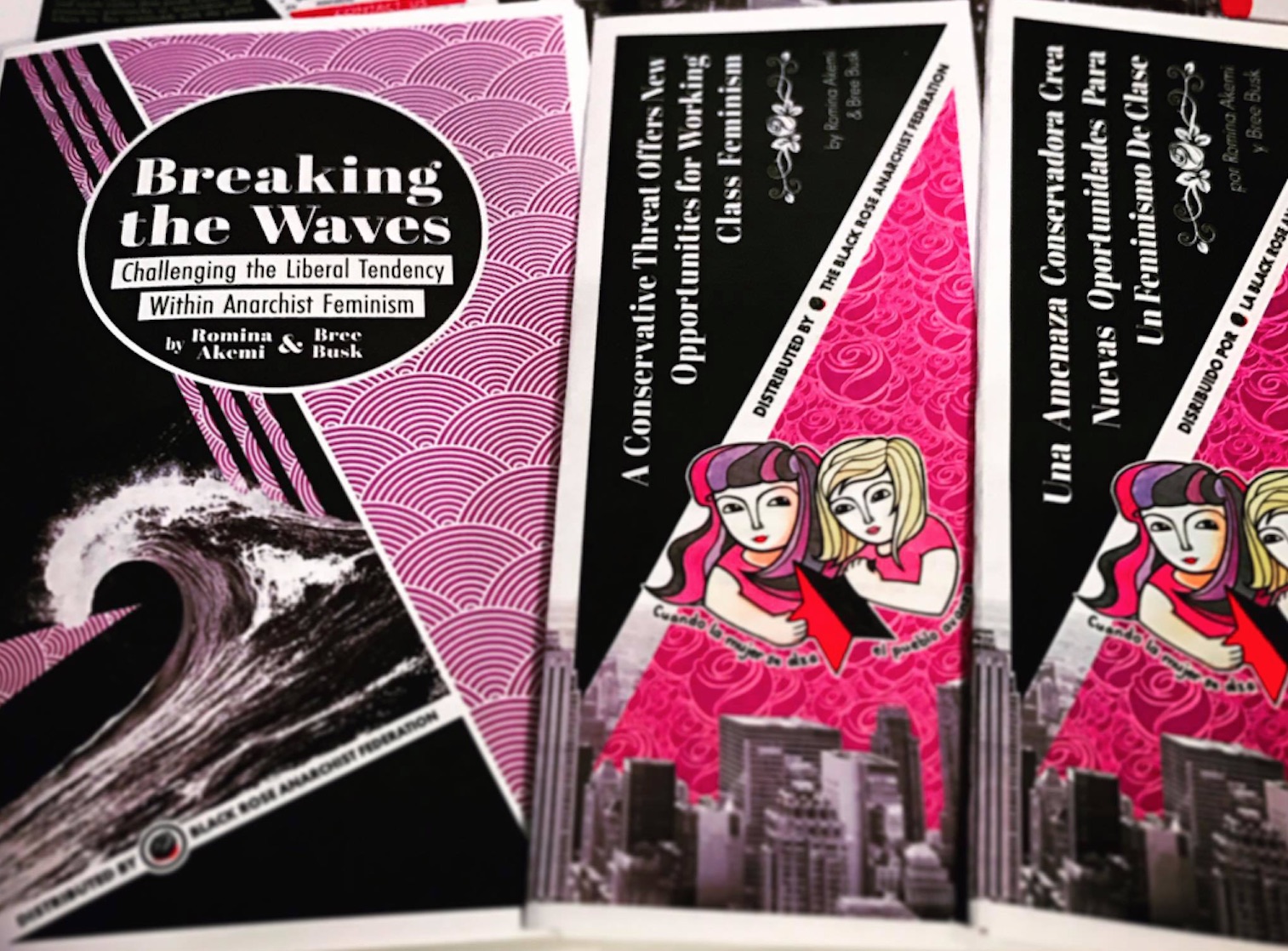
Insurrections at the Intersections: Feminism, Intersectionality and Anarchism by Abbey Volcano and J. Rogue
A critique of liberal conceptions of ‘intersectionality’ and an outline of an anarchist, class struggle approach. Link / Pamphlet
Queer Liberation is Class Struggle by JOMO
How can we form organizations today that take up the struggles that queer workers, both employed and unemployed, face at the workplace and in doing so, further the struggle for all of the working class? So that our victories are also class victories? The need for a working class queer liberation theory and practice is not just an academic foray. It is a necessity for us to reach out beyond the abstract lingo of queer theory, beyond the annals of academia, urban centers and progressive non profit scenes. Link / Pamphlet
With Allies Like These: Reflections on Privilege Reductionism by Common Cause
Enjoying a relatively hegemonic position in Left conversation, anti-oppression politics have come to occupy the position of a sacred object—something that expresses and reinforces particular values, but does not easily lend itself to critical reflection. Indeed, it is common for those who question the operating and implications of anti-oppression politics to be accused of refusing to seriously address oppression in general. A political framework should be constantly reflected upon and evaluated—it is a tool that should serve our struggles and not vice versa. Link / Pamphlet
How Do You Practice Intersectionalism? An Interview with bell hooks
An interview with bell hooks published by the Northeastern Anarchist #15 in 2011 touching on topics politics, class, and anarchism. Link
Confronting Vigilante Responses in Accountability Work: The Need for Accountability in Everything We Do by Romina Akemi
A transcribed presentation for the “Transformative Justice: Our Movements and Our Struggle” event held in Los Angeles in June 2014 which brought together nearly 100 individuals for a day long discussion around the challenges of transformative justice. This piece speaks from personal experience on those challenges and their larger implications. Link

